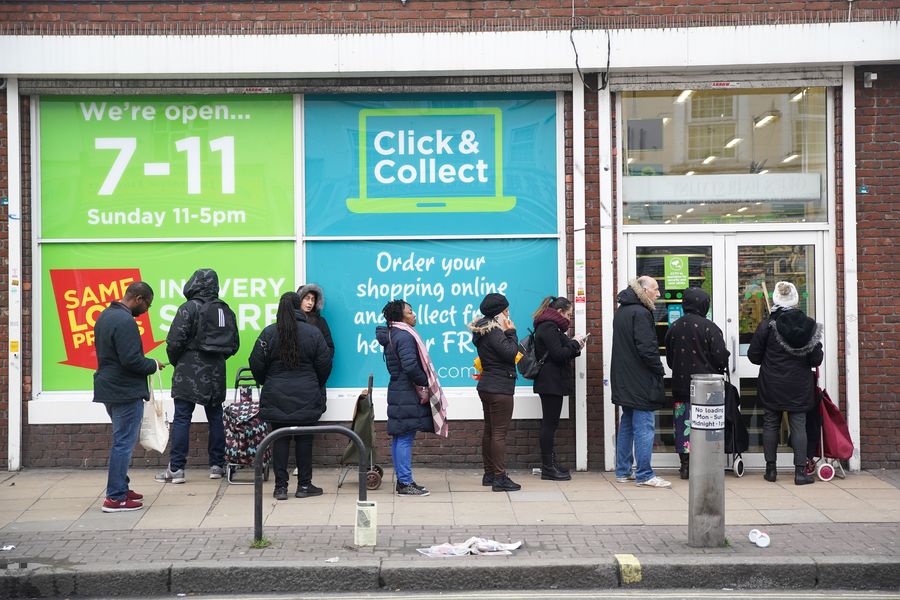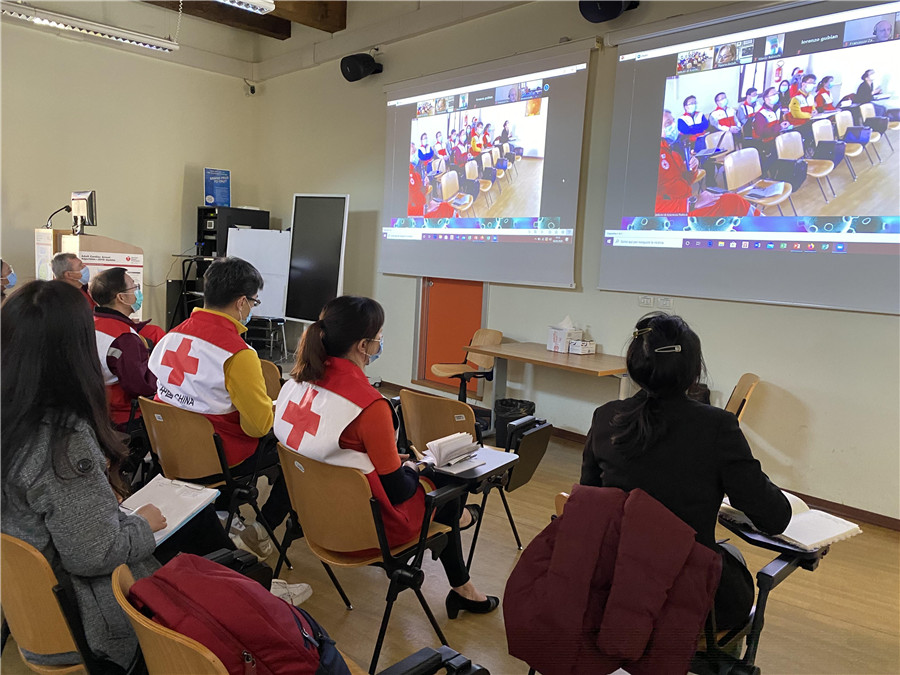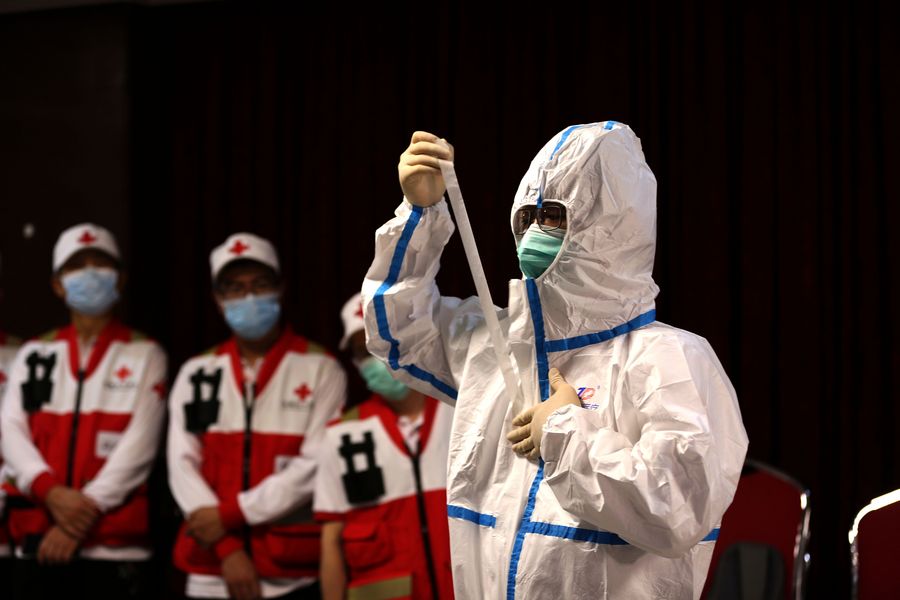
Photo taken on March 23, 2020 shows the almost-empty Roma Termini railway station in Rome, Italy. The COVID-19 pandemic had claimed 6,077 lives in locked down Italy by Monday, with the cumulative number of confirmed cases reaching 63,927, according to new figures released by the Civil Protection Department. (Photo by Augusto Casasoli/Xinhua)
BRUSSELS/GENEVA, March 23 -- More than 300,000 cases of COVID-19 have been reported in 189 countries and regions, said World Health Organization (WHO) Director-General Tedros Adhanom Ghebreyesus on Monday, noting "The pandemic is accelerating."
According to the WHO situation dashboard, 14,510 people have died worldwide from the coronavirus as of 10:00 CET (0900 GMT) Monday.
NO SIGN OF SLOWDOWN IN EUROPE
In Europe, there is still no sign of slowdown in the spread of the pandemic in the four hardest-hit countries -- Italy, Spain, Germany and France, as well as other countries.
By Monday, Italy still tops the list, with 63,927 confirmed COVID-19 cases and 6,077 deaths, followed by Spain, with 33,089 cases and 2,182 deaths. Germany came the third, with 22,600 cases and 86 deaths. France reported a total of 19,856 cases and 860 deaths.
Switzerland reported 1,046 new cases of COVID-19 on Monday, raising its total cases to 8,060, with death toll standing at 66.
Britain now had 6,650 confirmed cases and Austria, 4,424. Romania said it had 143 new cases on Monday, its biggest single-day jump, and five deaths. Albania witnessed 15 new cases in the past 24 hours.
LOCKDOWN AND RESTRICTIONS
British Prime Minister Boris Johnson announced Monday evening a series of measures that aim to restrict social contact in the UK to curb the spread of COVID-19. All shops except for food stores and pharmacies must be closed immediately, and meetings will not be allowed.
"From this evening I must give the British people a very simple instruction -- you must stay at home," Johnson said in a televised address.
Greece entered a 14-day nationwide lockdown on Monday, while France toughened up its restrictions on people's movement outside home. And the confinement rules imposed last Tuesday might last longer.
The Netherlands government announced more measures on Monday, banning all meetings and gatherings and imposing fines for shops and people that do not obey the measures.
Romania has imposed a curfew since Sunday evening. Citizens are urged to stay at home as much as possible during day time.
Hungarian Prime Minister Viktor Orban declared on Monday "We have to fight four battlefields simultaneously. We have to organize military, police, health and economic defenses."
Cypriot President Nicos Anastasiades on Monday night announced a total ban on unnecessary movement to stop the spread of the pandemic.
IMPACT OF CORONAVIRUS
With the accelerating spread of the virus, which forced closures of stores, schools, businesses, sports events worldwide, Munich-based ifo Institute estimated on Monday that Germany, the largest economy in Europe, would suffer losses of hundreds of billions of euros due to the coronavirus crisis.
A partial shutdown of economic life in Germany for three months would cost at least 354 billion euros (381 billion U.S. dollars). Extending the partial closure would result in additional cost of 25 to 57 billion euros per week, ifo noted.
On Monday, German aircraft engine manufacturer MTU Aero Engines announced to suspend a "large proportion of operations" across several facilities in Europe due to the pandemic.
The German government has approved the "largest aid package" in the country's history, worth 156 billion euros.
In Spain, Deputy Prime Minister for Economic Affairs Nadia Calvino on Monday ruled out full economic shutdown despite the grim situation in the country, explaining that some sectors were vital in the struggle to cope with the COVID-19 pandemic.
"It is very important for workers to have the necessary means of security at their disposal, so they can continue with their activity," she said.













